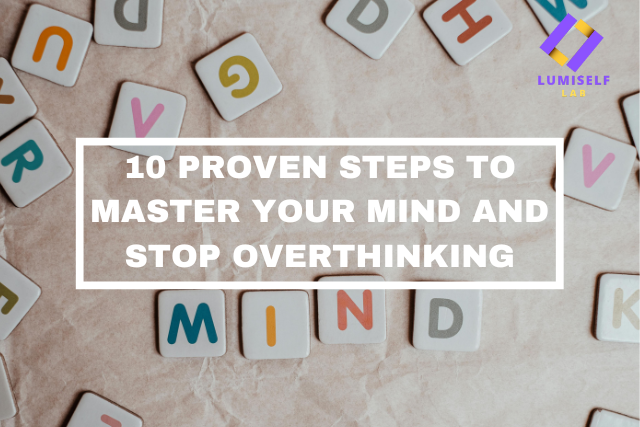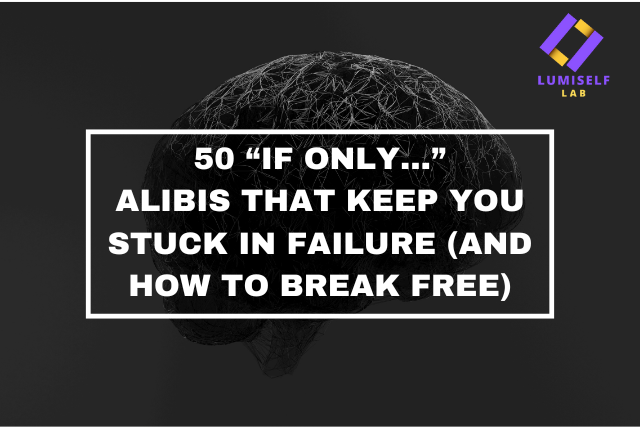It is our mind on which everything depends. Tasks feel harder or take longer when we don’t truly want to do them. Whether it’s quitting a bad habit, sleeping early, or eating healthier — we often face an internal battle. Some constantly overthink and lose motivation as pressure builds up. Today, the Lumiself Lab team brings you a breakdown of how to take back control of your mind, reduce internal resistance, and live with clarity.
Step 1: Changing the Thinking Pattern
1. Believe You Can Change
Nothing starts without belief. To bring change, you must first believe it’s possible. Research shows that people with a growth mindset — those who believe they can improve — are more likely to succeed. A fixed mindset traps you in negativity and fear of failure. Begin by trusting your potential.
2. Stop Overthinking
Overthinking builds invisible walls. Train your brain to break free by:
- Listing out all possible outcomes and preparing for them.
- Writing down thoughts that crowd your mind.
- Designating a specific “worry time” to process them later.
- Taking a walk to reset your environment.
- Avoiding overthinking before sleep.
3. Choose Optimism
Optimism doesn’t mean ignoring difficulties. It’s the strength to believe that better days lie ahead. Recall the problems you’ve already faced and overcome — they’re proof of your resilience.
4. Build Self-Belief Through Reminders
Tell yourself daily: “I can control myself,” “I can manage,” “I can do it.” Revisit past moments when you showed strength. That version of you still exists — it just needs to be reawakened.
5. Don’t Let the Past Decide Your Future
Many stay stuck in cycles of regret, judging the present by their past. Break free. Your past does not define your future. You can redesign your path by taking full ownership of your effort and actions today.

Step 2: Adjusting Perspectives
6. Change Your View of Change
Your perspective fuels your success or failure. If you keep associating change with pain or hardship, your mind will resist. Instead, plant negative associations with bad habits (like smoking or alcohol) by reading about their consequences. Over time, your mind will begin rejecting them naturally.
7. Don’t Take Everything Personally
Not everything that goes wrong is your fault. Learn to separate your real responsibilities from assumed guilt. You’re not responsible for every mishap around you — acknowledge your role logically, not emotionally.
8. Avoid Over-Anticipation
Some people reject new opportunities by assuming the worst — “I won’t enjoy the party,” “I won’t like these people.” But the truth is: we don’t know what will happen until we try. Exploration breaks mental limits.
9. Watch Out for Negative Future Forecasting
Some people are experts in predicting disaster. “Nothing good will happen to me,” they say. This drains hope and prevents action. Instead, accept that hardship may come — but so will opportunity. Speak to those who’ve faced similar challenges for guidance and perspective.
Step 3: Taking Action
10. Be the Architect of Your Mind
Once you’ve identified the thought loops, decide to break them — consciously and consistently. Surround yourself with positive influences, consume uplifting content, and lean on support systems when needed.
Conclusion
Your mind is your most powerful asset — not your enemy. Learning to manage it requires patience, small steps, and constant realignment. The mental battles we face can feel overwhelming, but with the right thinking patterns and daily practices, you can gain control. Let the journey begin with belief — because once you master your mind, everything else starts to follow.



